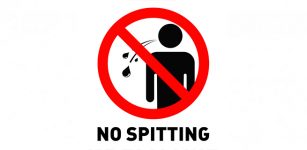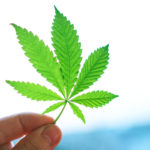Is Spitting On Someone An Offence?

While there is no doubt that spitting on someone is impolite, you may have wondered whether or not it is an offence.
Here’s what you need to know.
The offence of common assault in NSW
Yes, spitting on someone without consent is an offence. This is because it is classified as a ‘battery’ which means unauthorised touching of another person, which is now folded within the offence of common assault.
Section 61 of the Crimes Act 1900 (NSW) is titled ‘Common assault prosecuted by indictment’ and states that:
‘Whosoever assaults any person, although not occasioning actual bodily harm, shall be liable to imprisonment for two years.’
Unauthorised spitting is a ‘battery’ along with a range of other indirect contact such as throwing an object at another person or shining a light into their eyes. This was confirmed in DPP V JWH (1997), where the defendant spat on a police officer’s face and clothing. The court held that touching a person’s clothing, including spitting, amounts to assault.
Even if the act misses, it can still constitute common assault if the victim reasonably fears for their safety and the act was intended to intimidate them or carried out recklessly, causing them to feel afraid.
The offence of spitting on a public official
As a result of the COVID-19 pandemic, a specific offence was implemented under section 7 of the Public Health Act 2010 for spitting on a public official or other related workers ‘in a way that would reasonably be likely to cause fear about the spread of COVID-19’.
This offence carries a maximum penalty of six months in imprisonment and/or a fine of $11,000 if the matter is dealt with by a court, or a penalty notice (also known as an on-the-spot fine) of $5,000.
The new rule applies only to ‘public officials’, who are defined by the order as:
- health workers,
- police officers,
- other persons exercising public functions under the law of New South Wales,
- Immigration and Border Protection workers, and
- persons employed or otherwise engaged by the Commonwealth Department of Health.
A ‘health worker’ is defined as:
- a person employed in the NSW Health Service,
- a person engaged by the Health Administration Corporation,
- a person engaged by a public health organisation,
- a member of staff of a licensed private health facility,
- a registered health practitioner,
- a person who works in a pharmacy or on other premises at which a health practitioner routinely practises the practitioner’s profession,
- a member of staff of St John Ambulance Australia (NSW), or
- a member of staff of the Royal Flying Doctor Service of Australia (NSW Section).
Defences for spitting offences
There are some defences for spitting, for example no intention to inspire fear, or done in anger.
The main defences for assault are self-defence, duress and necessity, duress although it may be difficult to think of a whole lot of situations where spitting would plausibly fulfil the criteria of duress (ie being forced to spit) or necessity (having to spit to get out of an emergency situation).






